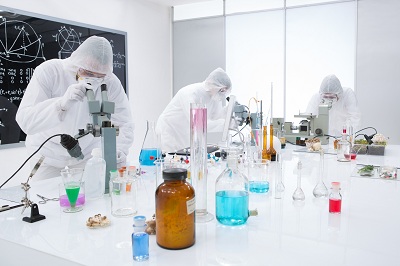corrosion test![]()
Valve detection![]()
Metallographic analysis![]()
component analysis![]()
Mechanical test![]()
failure analysis![]()
Nondestructive flaw detection![]()

2016-11-11 Rongda test 1397 times

Detection Purpose: Detection of stress corrosion sensitivity of stainless steel in boiling magnesium chloride solution
Detection range: Stainless steel, alloy, and other metal products
Stress corrosion cracking (SCC) refers to the phenomenon of delayed cracking or delayed cracking of metal materials under tensile stress due to the synergistic action of corrosion medium and stress in some specific media. Under the action of stress, austenitic stainless steel is prone to "chlorine embrittlement" in chloride solution, resulting in material damage. Therefore, it is necessary to carry out stress corrosion test on stainless steel by boiling magnesium chloride test. The corrosion temperature can be controlled at 143 ℃ or 155 ℃. The test time usually takes hundreds of hours.